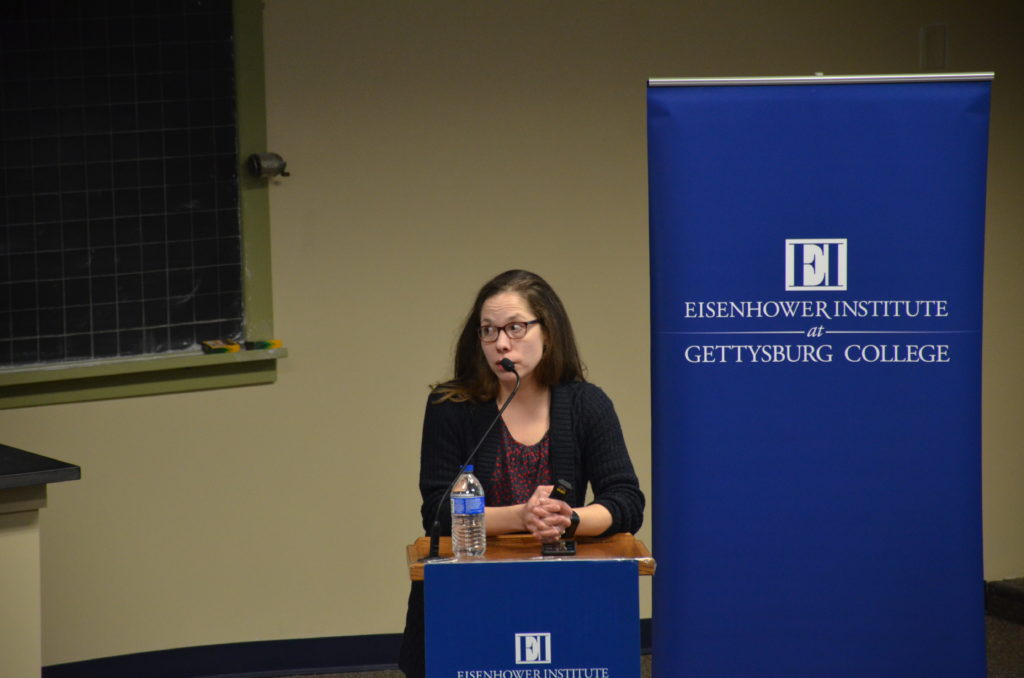In Second Civil Discourse Event, Mason Presents Research on Political Identities
By Kyle Beatty, Staff Writer
The Eisenhower Institute welcomed Dr. Lilliana Mason Thursday evening in Mara Auditorium to present her book Uncivil Agreement: How Politics Became Our Identity, and to speak about more recent developments in American political life as part of the college’s ongoing series on civil discourse ahead of the 2020 election.
Mason, an associate professor of government and politics at the University of Maryland, College Park, began her presentation with survey data regarding Americans’ policy preferences and political attitudes between the country’s two major political parties. The data painted a confounding picture: although our political beliefs often straddle party lines, negative emotions toward members of the opposite party far outweigh our shared values.
Drawing from early experiments in social psychology, Mason revealed to the audience that the most arbitrary and insignificant categories, including randomly assigned numbers, caused test subjects to accept the lesser of two rewards if it would lead to the other experimental group receiving even less.
Keeping this self-sacrificing, spiteful behavior in mind, Mason examined the conflict between groups, arguing that the more meaningful and intertwined one’s sources of identity become, the greater the risk for aggressive and hostile behavior.
She highlighted data from American voters in the 1990s to show how identities including gender, religious affiliation, union membership, and political liberalism or conservatism became much more strongly correlated with hostile behaviors towards members of the opposing party.
Following a discussion of partisan violence, Jackie Crowley ‘20 moderated a question and answer session. In response to a question asking for a timeline of the widening political divide, Mason proposed the Voting Rights and Civil Rights Acts as the wedge that divided the southern and northern Democrats and functioned as an early catalyst in the process of American political polarization.
The final question of the night asked how students could work to resolve this divide. Mason recounted a conversation with students from opposite sides of the aisle who had struggled to engage in civil political dialogue. Her advice?
“Go build a house‒ that’s it. Don’t talk about politics anymore… and when you’re done building a house, you can talk about politics, maybe only related to housing,” she said. “Start small, but start collaboratively.”

